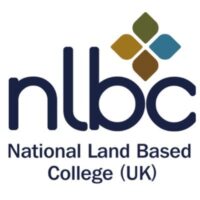Probably the most discussed current topic within vocational education are the new Trailblazer Apprenticeships and it will be important to define the role of NLBC in them as they develop…
The Government’s apprenticeship reforms are committed to putting employers more in control of training and there are some excellent examples of sectors that have grasped this opportunity with both hands. NLBC have been invited to engage with the two industry groups leading on arboriculture, forestry and horticulture; and agriculture (crops and livestock).
The Government aim of putting industry in the lead is admirable, however, land based colleges still have a crucial part to play. In many Trailblazer frameworks there are no formal qualification written into them, but the hope is that this will not be the practice adopted as we go forward. The steer from Government around the inclusion of qualifications is open to some debate, but their Post-16 Skills Plan (July 2016) clearly sets out a vision for technical and academic routes. Each technical route will offer both college-based and employment-based (apprenticeship) education. The Government aim is that both are equally valid preparation for skilled employment.
To deliver on this Government aim, NLBC, with our partner City & Guilds, aim to develop Technical Qualifications that are so good that industry is clamouring to have them in their apprenticeships. By achieving this it will mean that any young person, in either a college or apprenticeship route, will receive the same key underpinning knowledge for their chosen sector. It will also mean that providers are able to develop programmes that both college students and apprentices can study together, providing economies of scale. A key Government aim is for young people to be able to switch back into the academic route from an apprenticeship and so a recognised qualification within a framework should be regarded as fundamental.
The design of the apprenticeship frameworks, training schedules and assessment plans is important. However we believe that the crucial element to the ultimate success of the new apprenticeships and Technical Qualifications is the creation of high quality delivery tools for providers to use – lesson plans, teaching notes, visual presentations and practical activities to teach block and day-release courses. There is a great potential for NLBC to work with industry and providers to create these tools, which would save providers time and ensure the base level of delivery was enhanced across them all. There are many great examples in vocational training where the delivery tools are ‘off the shelf’ and work extremely well. How many driving instructors prepare notes to teach the Highway Code?!
An ambition for NLBC is that, in the future, any 16-year-old in the UK who wants to start a career in one of the land based sectors has that opportunity. We believe that the use of blended learning and digital technology can facilitate that. Imagine a 16-year-old going to any of the land based colleges and being told that they could do forestry (et al.) and that 80-90% of their theory training would be at their local college, supported by fantastic learning tools developed in partnership with industry. Then within their 2-year programme they perhaps had to go to another college (or industry centre) to complete block weeks delivering the highly specialist knowledge of their chosen field. This could be exemplar in terms of industry integration.
As we design our apprenticeships and Technical Qualifications for the generations coming through, we believe we must fully embrace technology. Many Trailblazers will not launch until 2017 at the earliest and therefore the people that will undertake them are currently <15 years old. There is no substitute for practical teaching and ‘getting dirty hands’, but digital is a key part of their lives, NLBC recognises that and we aim to maximise the potential.

